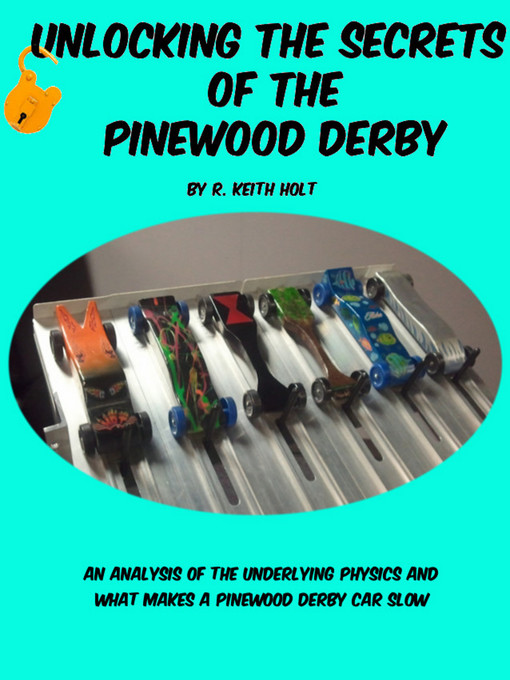In 1979 I took my first physics class in high school. I had always been pretty good in science and math, but physics was the perfect marriage of both. It explained everything in my mind. Sure, I had a basic understanding gravity, friction, drag, etc., but physics allowed you to precisely measure and calculate those fundamental properties.
So, here we are over 30 years later. My son joined Cub Scouts as a Tiger Cub and we were exposed to one of the biggest annual physics experiments in the world.... The Pinewood Derby.
Over the next four years, my son and daughter experienced a lot of success in the Pinewood Derby at both the pack and district level. In my son's final year of competition, he won the den, pack, and district races as well as a race that was held at the National Scouting Museum in Irving, Texas. I thought that was it for the Pinewood Derby, but I was wrong....
At my kid's elementary school, fifth grade is the year that they all participate in the science fair. My wife and I were dreading the upcoming projects since we have twins. Then one day at work, a fellow engineer told me about how he and his son did a physics based science fair project. Bang! The light went on in my head and I thought, "Wow, why don't we do a project based on the physics of the Pinewood Derby." I pitched the idea to my kids and they were both all in.
The problem with the science fair project was to figure out what we were trying to prove. We pretty much already knew how to build a winning car, so all we could really do is show how to make the car slower. So, that's what we did. We built a control/test car that applied all the best practices that we had learned along the road. Then we changed the mass, center of gravity, friction and drag to show how each of these attributes effected the performance of the car.
My kids worked really hard on this project and by the end, really had a grasp of why the cars they had helped to build every year were so successful. It wasn't just luck, it was physics. The project came out great. I mean really great. They won their school's science fair and placed 2nd in the city wide district science fair. Personally, I would take those two victories over all the Pinewood Derby victories combined.
As the project came to a conclusion, I came to a realization. There is a lot of info on the web about how to build a winning car. What you can't find is experimental data that quantifies the effect of not following the winning recipes. In other words, what is the sacrifice if you don't follow all the known speed secrets.
This booklet attempts to quantify the sacrifices you can expect if you don't optimize the weight, center of gravity, drag and friction. The data my kids collected for their elementary science fair experiment will show you just how important each of these attributes are and what you can expect if you decide to cut corners.
I also picked up a couple of speed secrets along the way. I will provide you with what I think are some really good tips on lubrication, polishing of axles and wheels, drag and friction reduction, weight placement and adjustment. In particular, the approach we used to polish and lubricate the axles and wheels is superior in my opinion.
What I really hope is that this book helps you figure out quickly how to build a car that is very competitive without wasting a bunch of time on the web. Enjoy, and happy racing!

